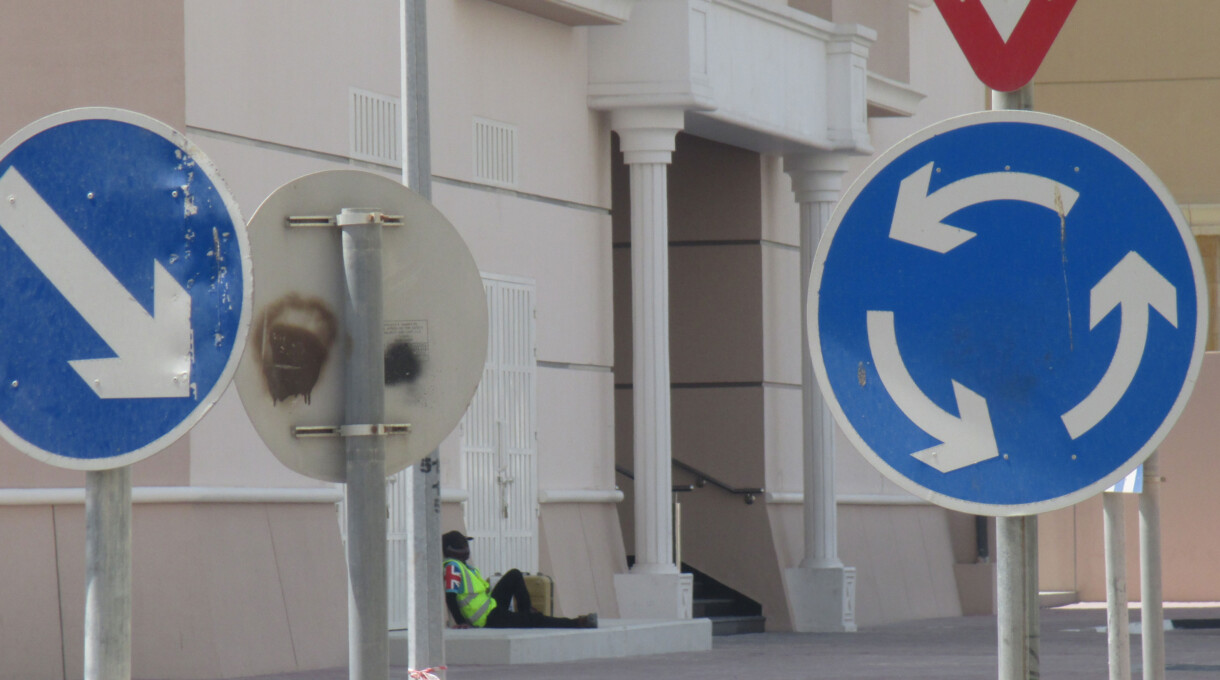
Sorry! We are going to hold on to the exit permit system
Proving its critics right again, Qatar yet again flip flopped on its already weak reforms.The Qatari Emir issued Law No 1 of 2017 on January 4, reinstating the draconian exit permit system.
Only three weeks ago, Law No 21 of 2015 came into effect, claiming to abolish both the Kafala and exit permit system. An Exit Permit Grievances Committee was formed on on December 12, a day before the amended law came into effect. The exit permit was supposed to be automated under the purview of the Ministry of Interior. The worker would inform their employer, but apply directly to the ministry.
However, the law issued on January 4, 2017 says expatriates should still seek permission from their employers.
We are now at the halfway point between Qatar’s winning the bid to host the FIFA World Cup in December 2010 and the December 2022 games.
For six years, Qatar teased out Kafala reforms, regressing on its promises with every new announcement.
What was finally announced in November 2015 and implemented on Dec 13, 2016 is a far cry from what it promised on May 14, 2014. Qatar’s Shura Council had pushed back on those reforms, pressuring the government to backtrack on its promises.
The case against Qatar has unfortunately been polarised, linking it primarily to its hosting of the football world cup. The reporting on the issues internationally has been often superfluous and exaggerated, with little or no honest reflection in the local media (except the now censored Doha News). Between blind accusations and even blinder support, the country has found enough half-truths to hide behind. It seems Qatar will get away with impunity, despite pressure from international agencies, including ILO’s ultimatum to end forced labour.
Human rights abuse, with or without a World Cup, should be everyone’s concern. If the worst case scenario is taking the World Cup away from Qatar, then it would have little impact on its citizens; but for a temporary loss of face – which we have seen Qatar brush aside easily – nothing would change for the workers themselves.
Without a true commitment to human rights, and a citizenry that understands that xenophobic control of migrant labour will not benefit their country, there’s little to no hope for any sustained change.
Qatar controls and intimidates local news outlets. So much so, that reporting on reforms in the country is farcical. The reports in local media give little to no room for critical dialogue.
See for instance this unquestioned regurgitation of the latest amendment in a local newspaper:
<<According to the amendment, an expatriate worker shall have the right to exit the country for vacation, in case of any urgent circumstance, or any other purpose after informing the recruiter, according to the employment contract. "Also, the foreign worker shall have the right to leave the country permanently before the expiry of the employment contract after informing the recruiter, according to the employment contract. In case of any objection on the exit or departure of the expatriate worker by the recruiter or the department concerned , the expatriate worker shall have the right to petition the exit permit grievances committee , which shall be formed and regulated by a decision of HE the Minister. The committee shall resolve the petition within three working days."
"For an exit permit, the employee only needs to submit an application to his employer as is being done now," he [Ministry of Interior (MoI)'s Legal Affairs Department head Brigadier Salim Saqar al-Muraikhi] said … >>
Note the ‘provisions’ in the amendment: the right to leave before end of contract, right to exit for vacation... One wonders if Qatar is aware that it abolished slavery in 1952. That these points are mentioned in 2017 reflects the scant respect Qatar has for personal freedom and that it considers basic human rights as a privilege it can extend or withhold on a whim.




